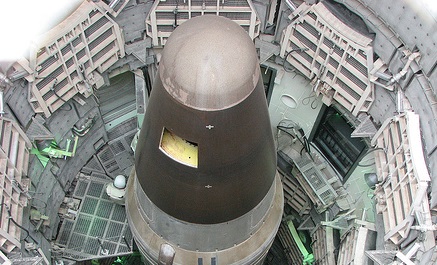Nuclear weapons, once relegated to the pages of dystopian fiction, have become pivotal components of international relations and national security frameworks. The necessity of these formidable armaments has been a topic of intense debate, characterized by nuanced arguments that traverse moral, strategic, and geopolitical dimensions. This examination delves into the multifaceted rationale for the existence of nuclear weapons, probing beneath the surface to reveal the complexities underlying this contentious issue.
Firstly, one must consider deterrence theory, a cornerstone of nuclear strategy since the advent of these weapons. At its core, deterrence operates on the premise that the possession of nuclear capabilities can prevent adversarial states from engaging in aggressive actions. The concept hinges on mutual assured destruction (MAD), where the knowledge that both parties would face catastrophic consequences in the event of a nuclear exchange creates a stalemate. This paradoxical equilibrium, while morally precarious, has arguably preserved global peace during the Cold War era and beyond, indicating that the existence of nuclear arms may serve as a stabilizing force amid geopolitical turbulence.
Moreover, the deterrent effect extends beyond simple military confrontation. It encompasses a broader spectrum of threats, including terrorism and cyber warfare. Nuclear arsenals can serve as a bulwark against rogue states or non-state actors contemplating drastic measures that could destabilize entire regions. As such, the presence of nuclear weapons may act as a strategic anchor, fostering a sense of caution among potential aggressors who recognize the severe repercussions of escalating hostilities.
On a global scale, nations wield nuclear weapons as instruments of influence and diplomacy. In an anarchic international system, states are often compelled to project power to safeguard their interests and maintain sovereignty. The possession of nuclear arms elevates a nation’s stature on the world stage, allowing it to negotiate from a position of strength. The United Nations Security Council, for instance, is predominantly influenced by the five recognized nuclear weapon states (the United States, Russia, China, France, and the United Kingdom). These nations enjoy a privileged status, underscoring how nuclear capabilities can translate into diplomatic leverage.
Another consideration is the concept of regional security dynamics. In regions where nations have adversarial relationships or historical grievances, the acquisition of nuclear weapons becomes a crucial element of national defense. For instance, the South Asian subcontinent provides a compelling case study, where India and Pakistan’s nuclear arsenals are seen not merely as military assets, but as essential safeguards against existential threats. This pursuit of nuclear capabilities can precipitate an arms race, heightening tensions but simultaneously instigating measures for conflict resolution and stability, illustrating the paradoxical nature of nuclear proliferation.
Furthermore, nuclear technology is often portrayed as a double-edged sword. While fundamentally destructive, the knowledge and infrastructure associated with nuclear energy also bear potential benefits. States engaged in nuclear weapons programs frequently acquire advanced scientific and technological expertise, which can be repurposed for civilian applications. This dual-use dilemma complicates the discourse surrounding nuclear proliferation, as nations may cite energy needs to justify their pursuit of nuclear capabilities, complicating international non-proliferation efforts.
Amidst these calculations, ethical considerations invariably arise. The humanitarian implications of nuclear weaponry are profound, as the catastrophic ramifications of their use are indelibly etched into the global consciousness. The bombings of Hiroshima and Nagasaki remain haunting reminders of the destructive power that nuclear weapons can unleash. Nonetheless, many proponents contend that the deterrence value is sufficient to warrant their existence — a controversial assertion that challenges moral absolutes in favor of pragmatic considerations of state survival.
On the subject of international law, the Treaty on the Non-Proliferation of Nuclear Weapons (NPT) exemplifies the ongoing tension between disarmament aspirations and security needs. While the NPT aims to curtail the spread of nuclear arms, it simultaneously recognizes the right of states to possess nuclear capabilities for self-defense. This duality underpins the global discourse on nuclear policy, as states navigate a landscape fraught with ethical dilemmas, security imperatives, and power dynamics.
Moreover, the rise of new technologies adds layers of complexity to the nuclear discourse. The advent of precision-guided munitions, missile defense systems, and emerging cyber capabilities has revolutionized military strategies and altered perceptions of risk. As states reassess their security postures in light of technological advancements, nuclear weapons may increasingly be viewed as outdated relics or, conversely, essential elements of a modernized defense strategy capable of counteracting increasingly sophisticated threats.
Ultimately, the need for nuclear weapons embodies an intricate interplay of deterrence, diplomacy, regional security, ethical quandaries, and evolving military paradigms. As global power dynamics continue to shift and new challenges emerge, the discourse surrounding nuclear armaments will remain a vital issue. Societies must grapple with the implications of these devices, weighing their potential for destruction against their strategic utility. The ongoing debate reveals a broader question of not only how nations protect themselves, but also the moral landscape of security in a world teetering on the brink of potential catastrophe.












